Robots and AI: The Future of Automation in Everyday Life
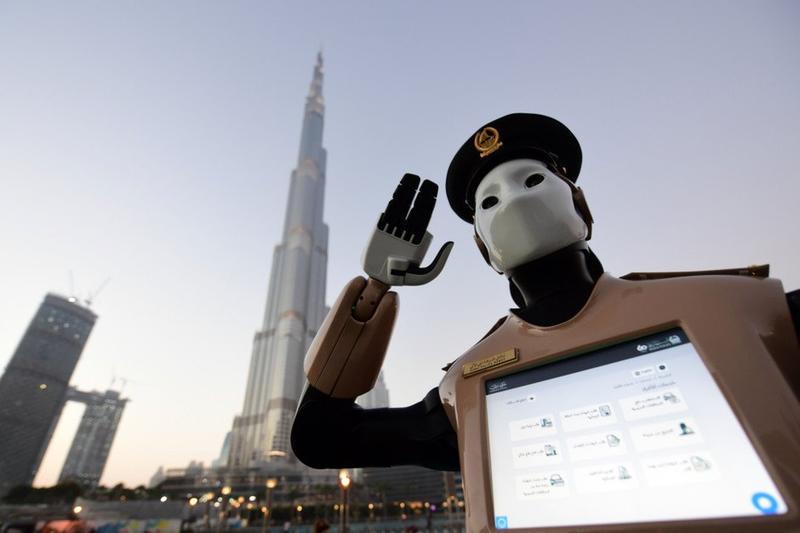
Robots and artificial intelligence (AI) are getting faster and smarter than ever before. Even better, they make everyday life easier for humans. Machines have already taken over many human roles, like those of teachers, chefs, cops and even lovers. Advanced technology is also revolutionizing and automating cars, restaurants and stores.
The future is already here thanks to these insane yet exciting innovations. Check out how robots and AI are now used in everyday life.
Self-driving Vehicles
Today, self-driving cars are on the road thanks to Tesla, Mercedes and BMW. However, these cars aren’t fully automated. Driving automation breaks down into five levels. Currently, we’re only at level three, in which the car’s sensors monitor the environment and control the vehicle itself.
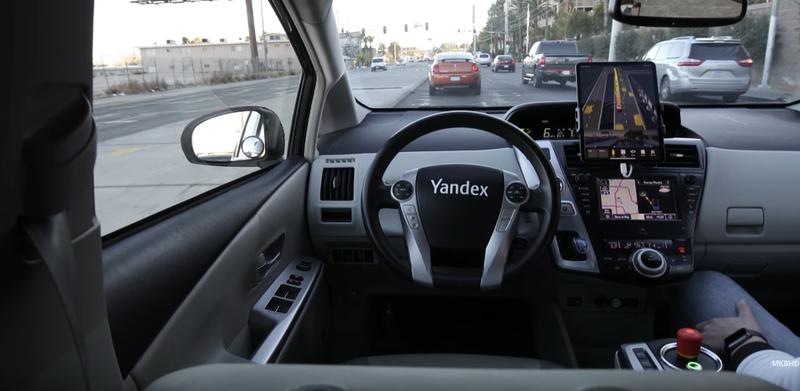
At level three, the driver still needs to pay attention to the road for safety reasons. However, we’ve almost reached level four: high automation. At this level, the driver could snooze or leave the driver’s seat. Sounds scary, right? Don’t worry — cars with high automation are still in testing. But self-driving cars will be normal for us all eventually.
Robot Teachers
Imagine going to class and finding out your teacher is a robot. It seems like a sci-fi movie, but in South Korea, it’s a reality. Engineers created general-purpose robots to help autistic students who have difficulty communicating with other people.
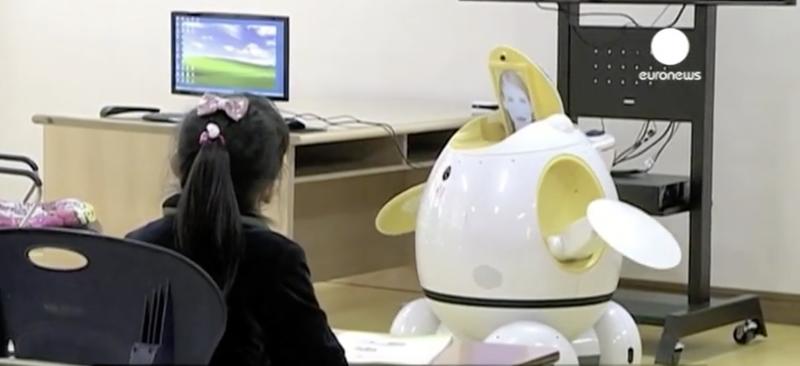
The humanoid robots resemble real people and teach the students social cues and educational lessons. Robots also help when there’s a shortage of qualified native-English-speaking teachers. This is where a telepresence robot comes in. When teachers can’t physically be in the room, they control bots to educate the class.
Bartender
Long lines at bars are frustrating and irritating. Skip the wait and hire your own bartender at home — or should we say buy one? Barsys is a smart robot bartender that can make more than 2,000 different drinks. Whoa.
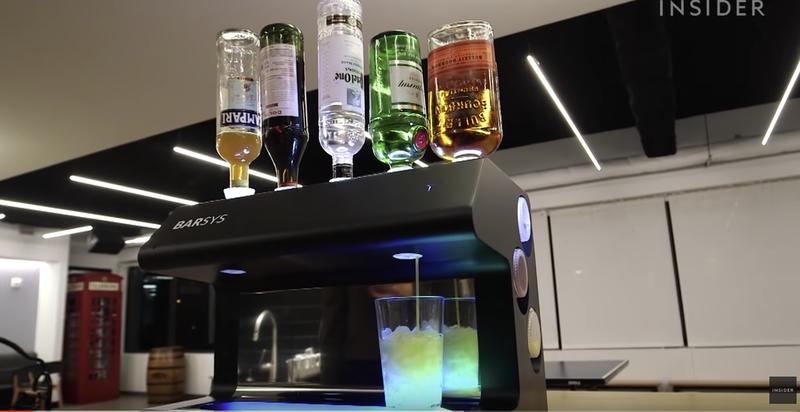
Linked to an app, Barsys allows you to craft cocktails with just a click of a button. It’s simple and fast. Insert your favorite liquors and mixers, and then use the app to tell Barsys to make the concoction. It’ll be ready in less than 30 seconds.
Prison Guard Robots
In 2012, robot prison guards invaded South Korean jails (just kidding). However, the world’s first roboguards were used in the city of Pohang. Observing behavior, the roboguards learn to recognize repeated actions and moods of prisoners. If any incidents occur, the bots alert human guards in real time.
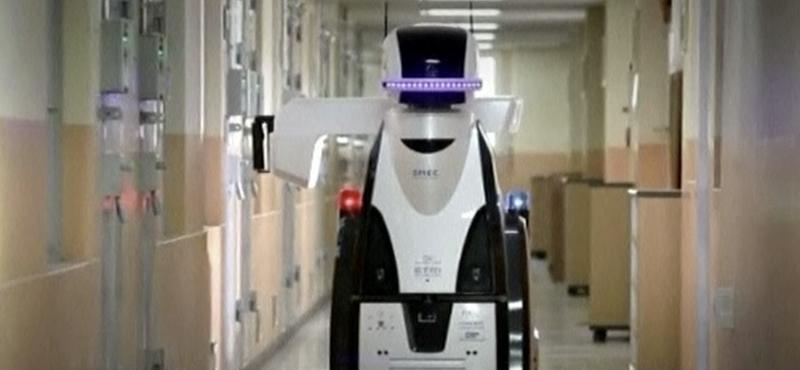
With roboguards, prisoners are protected from arson, self-harm and assault. In other words, the robots help prevent serious incidents from happening. South Korea also uses the robots to patrol the Demilitarized Zone (DMZ) between North and South Korea. These robots are even used as teachers.
Hoverboards
Back to the Future said hoverboards would be available by 2015. That year, inventor Cătălin Alexandru Duru designed a hoverboard that flew 302 yards. Lexus also created its own product called SLIDE. However, those boards weren’t for sale.

ArcaSpace joined in on the fun and developed ArcaBoard, a hoverboard that flies one foot above the ground. It’s powered by 36 electric fans and has 272 horsepower. Now, the question is: Can you afford it? ArcaBoard costs a whopping $20,000.
Surgeons
The robot doctor will see you now. Robots and AI have disrupted the medical industry. Some robots give medications to patients in hospitals. Wheeling down the halls and taking elevators, the robots also reach different floors on their own.
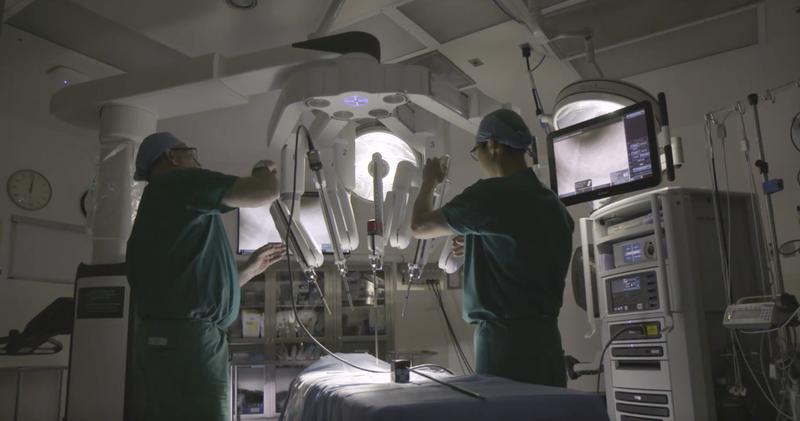
Hospital robots can even perform complex surgeries with human supervision. Although surgeons control the robots, the technology is still impressive. The Smart Tissue Autonomous Robot (STAR) makes more precise cuts and stitches than most human surgeons. The da Vinci Surgical System robot has removed a patient’s bladder.
Security Guard Robots
It’s like any other day. You drive to your destination and park your car in a lot with a security guard. But, unlike your average guard, this one is made of plastic and computer lines. It also looks nothing like a human.
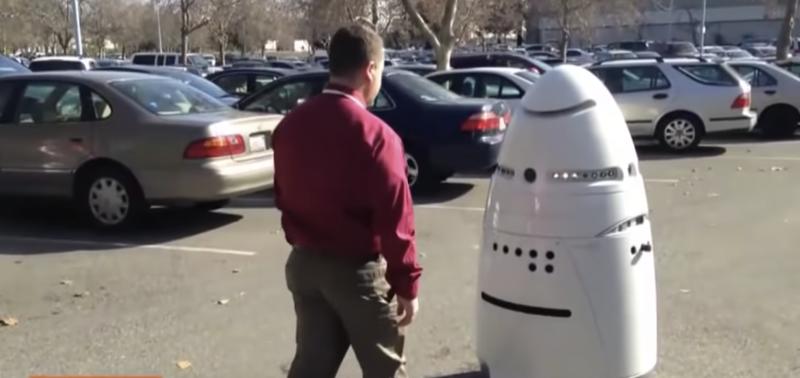
Instead, the guard is a five-foot-tall, egg-shaped white robot rolling around the lot. Humans who stop right in front of the bot notice that the roboguard will stand still and look at them. It’s not a staring contest. The bot is actually scanning for any irregularities or trouble.
Assisted Living
Why are robots popping up in assisted living facilities or nursing homes? The bots actually help take care of elderly people. With the assistance of bots, the elderly can get out of bed. In fact, a Korean robot that resembles a chair can lift and carry a 220-pound human being.
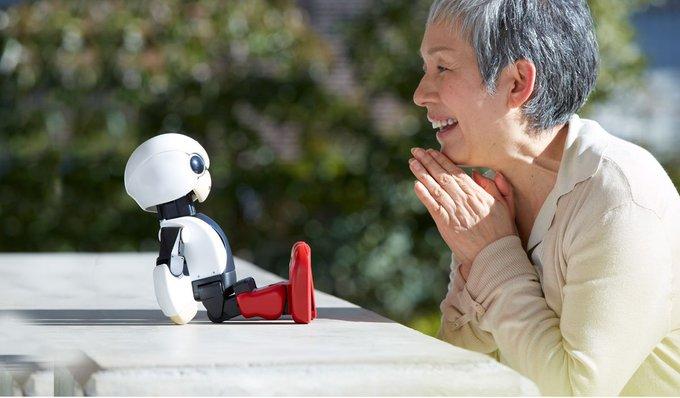
Some robots remind their patients to take medication or keep track of their health. Robots in assisted-care facilities are a great example of how the elderly can benefit from advanced technology. Some robots even give companionship to the lonely (more on that later).
Robot Receptionists
People often claim that Japan is living in the year 3000. With robots as hotel staff, it’s easy to believe the country really is living in the future. In fact, the Henn na Hotel Maihama Tokyo Bay has dinosaur robot receptionists. It’s terrifying and mind-blowing all at the same time.

The multilingual dinobot sits at the front desk and performs multiple tasks, including check-in and check-out procedures. In hotel rooms, a smaller dinobot tells guests the weather and time. Afraid of staff with large teeth and claws? Other hotels in Japan have “hired” humanoid robots.
Cafe Workers
Japan is known for its hottest dinner-and-show experience: Tokyo’s Robot Restaurant. But a Japanese robot cafe is a different experience from that insane diner. At the robot cafe, the servers aren’t autonomous. They’re remotely controlled by paralyzed people.
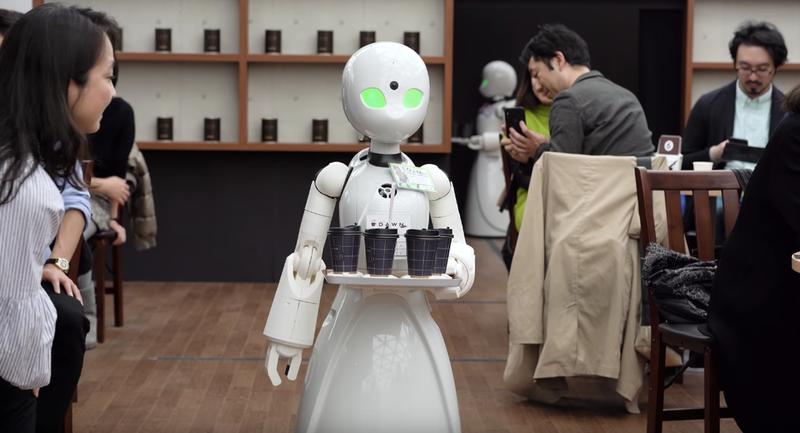
Thanks to this initiative by The Nippon Foundation, Ory Lab Inc. and ANA Holdings Inc., people with ALS or severe physical disabilities can interact with others and make an income. The robots can take orders and serve food. This cafe is a great example of utilizing remotely controlled robots to help others.
Automated Restaurants
Sometimes, restaurants and cafes take too much time to serve food and drinks. But what if you didn’t have to interact with anyone or wait for service? For some, it may be a dream come true. The restaurant industry and automation are currently colliding more than ever.
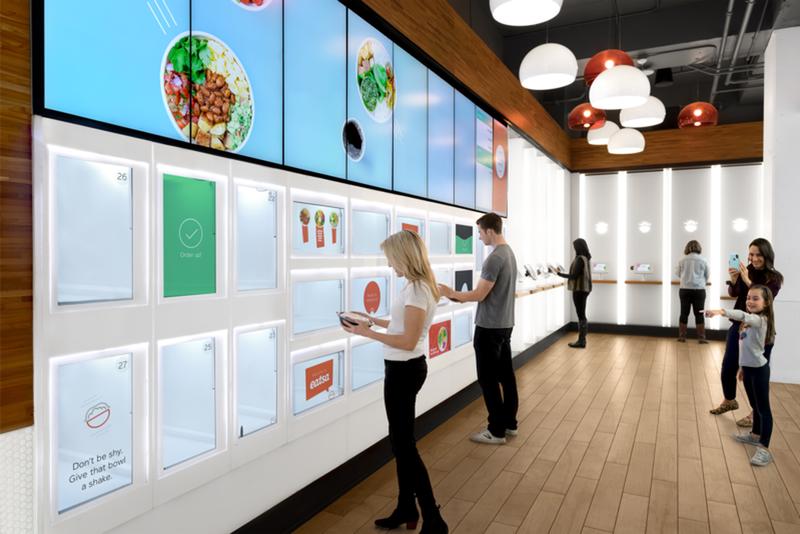
For instance, San Francisco opened its first fully automated restaurant called Eatsa in 2015. Customers picked up their food in cubbies without servers, waitstaff or cashiers there. Although Eatsa is closed, it’s not the only place to adopt automation. In 2019, China opened its first fully automated hotpot establishment.
Robot Farmers
The farming industry has also met the robot and AI revolution. Working in agriculture is intense, so some places discovered how to utilize advanced technologies for farming. In Japan, duck robots plant rice and tend farms. They also feast on insects and weeds.
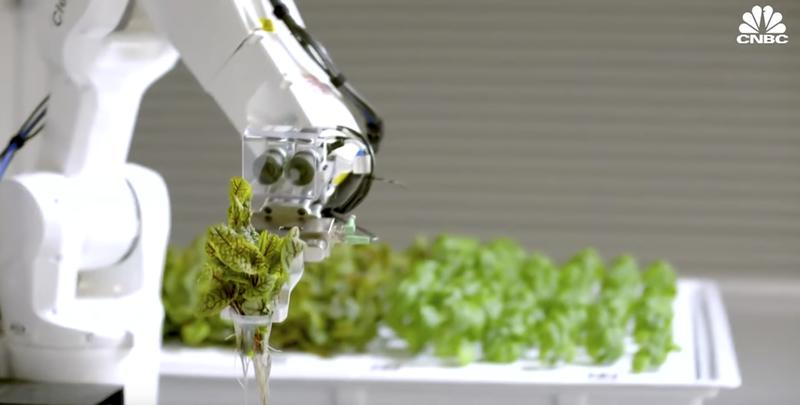
Iron Ox, located in California, fuses robots and hydroponics (growing plants without soil). The automated farming company has already sold salads at a grocery store. The robots self-drive and pick the crops, but humans still plant seeds and package the salads.
Sushi Chefs
Compliments to the (robot) chef. The rise of advanced technology opens new opportunities for food-prep robots. One Japanese creation, SCARA, can even prepare and serve sushi. The dual-arm robot with a face efficiently puts together rice and fish and lays them on trays.
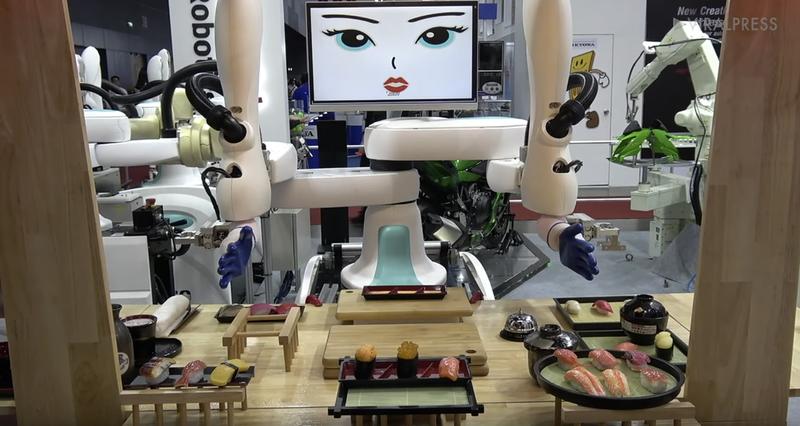
SCARA even rings a bell to let patrons know their sushi is ready. Want extra wasabi? It can add that too, but the robot still needs human assistance to cook rice and fish. Other robots around the world can create pizza, pancakes and perfectly flipped burgers.
Crime-fighting Robots
Crime-fighting robots can be effective. But, in a few cases, they can be a mistake. Police robots are used to investigate buildings and identify the exact locations of armed and dangerous criminals. Remote-controlled robots are used to check booby traps and disarm bombs. They also help assess hostage situations.
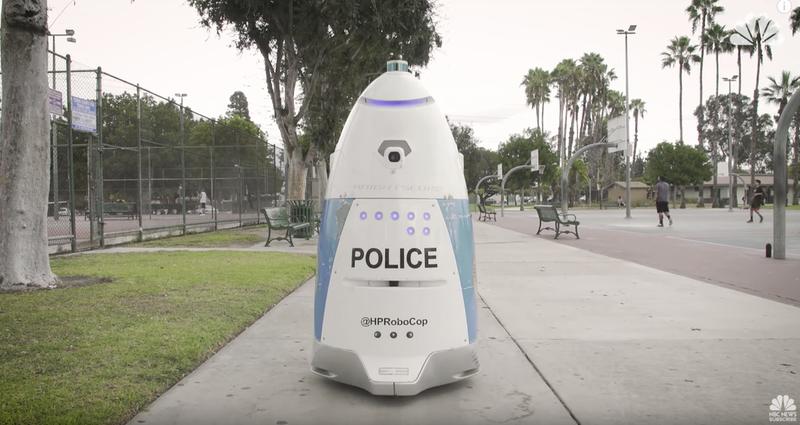
Sometimes, police robots don’t work out. In fact, one copbot was fired after terrifying homeless people in San Francisco. It returned to the office covered in sauce and human waste. However, it’s not a good idea to mess with the bots. A drunk man was caught and arrested for knocking over a copbot in Silicon Valley.
Delivery
On Friday night, you order a pizza for delivery at home. Instead of a delivery person, your order arrives via a robot. Autonomous robots are changing the future of delivery. Domino’s, DoorDash and FedEx have teamed up with companies that design self-driving delivery robots.
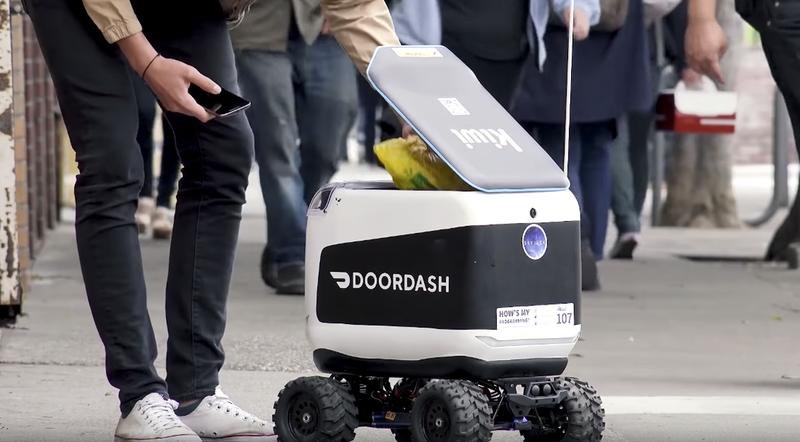
Using cameras and sensors, the robots wheel down sidewalks and cross streets. They can even read traffic lights. If the pathway is broken or uneven, the bot will move with caution. If the bot isn’t sure when to cross, it’ll ping a human from the office for guidance. What if the bot gets kidnapped? It can blast an alarm.
Home Robot
Home robots, like Kuri, can do more than just look adorable. Designed for personal uses, a homebot acts as an assistant. The bots can track your routine, including when you shower or eat. They can also detect your face and recognize pets.
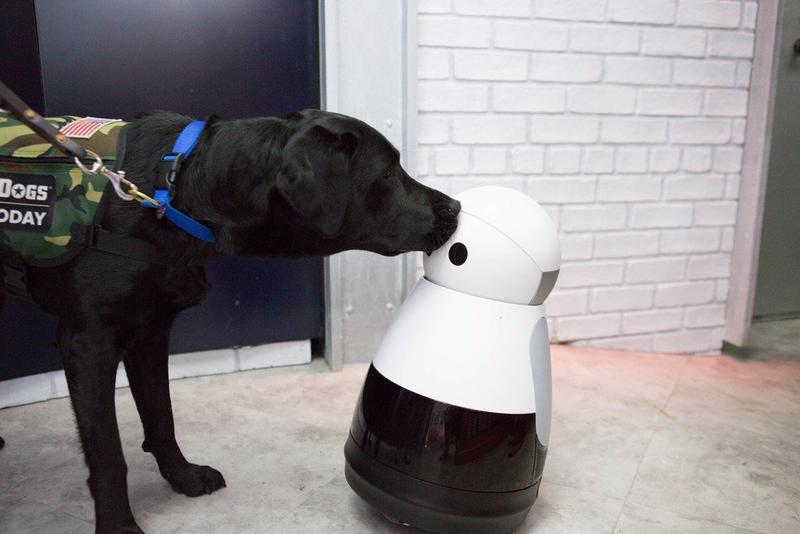
If you’re not home, the bots will watch over your place and pets. Some bots will do your chores, such as vacuuming, scraping the grill, degunking gutters, mowing the lawn and even jumping into a pool to clean it.
Mini Bed Cleaner
CleanseBot goes between the sheets to clean beds. Even better, the robot fits perfectly in your pocket, so you can bring it with you to hotels or Airbnbs. The portable robot is like a Roomba, but it’s designed for beds.
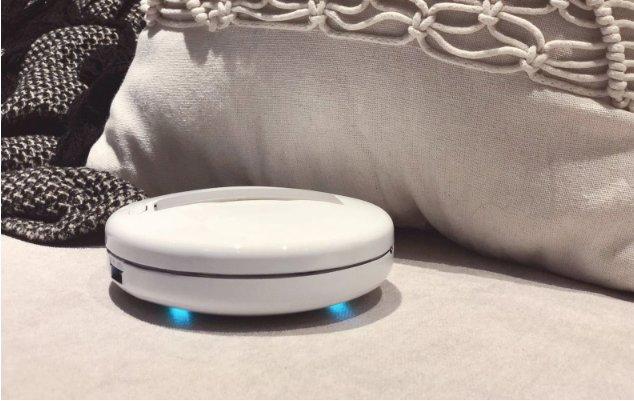
Using ultraviolet light, CleanseBot kills bacteria, germs and dust mites. According to the creators, the bot can kill 99.9% of germs and bacteria. The best part? Users can set it and forget it because CleanseBot has sensors and edge detectors.
Firefighter
Your new local firefighting hero might just be a robot. In 2014, the Navy unveiled a new firefighter called the “Shipboard Autonomous Firefighting Robot” (SAFFiR). The force created SAFFiR to prevent fires on ships, especially naval ships with nuclear reactors.
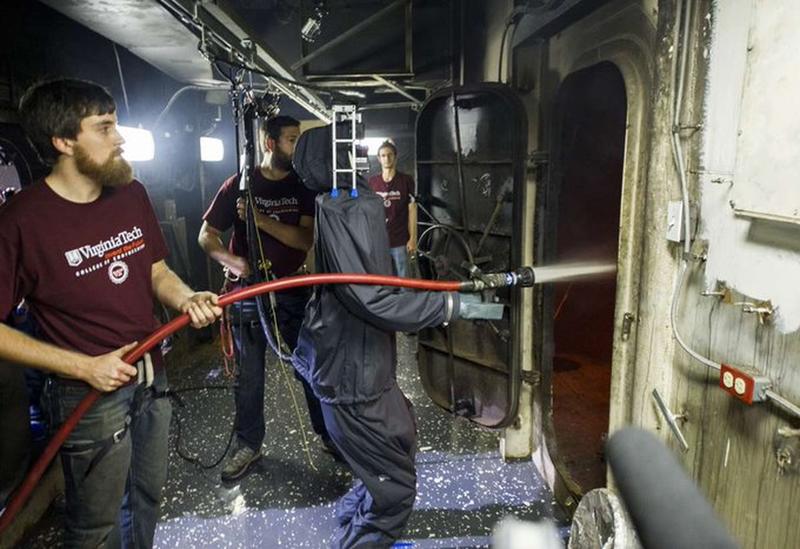
SAFFiR is an ideal first responder because the humanoid won’t struggle in rooms filled with smoke. During testing, SAFFiR successfully detected a fire, picked up a hose and extinguished the flames. Robots like SAFFiR can save lives. In fact, a robot called Colossus kept Notre Dame firefighters from danger in April 2019.
Pets
In the 1970s, consumers thought the perfect pet was a pet rock because it didn’t need a bath or make a mess. Today, people are falling in love with pet robots, like Sony’s Aibo Robot Dog. Aibo is a cute robot that doesn’t get sick or trigger allergies, making it the ideal pet.
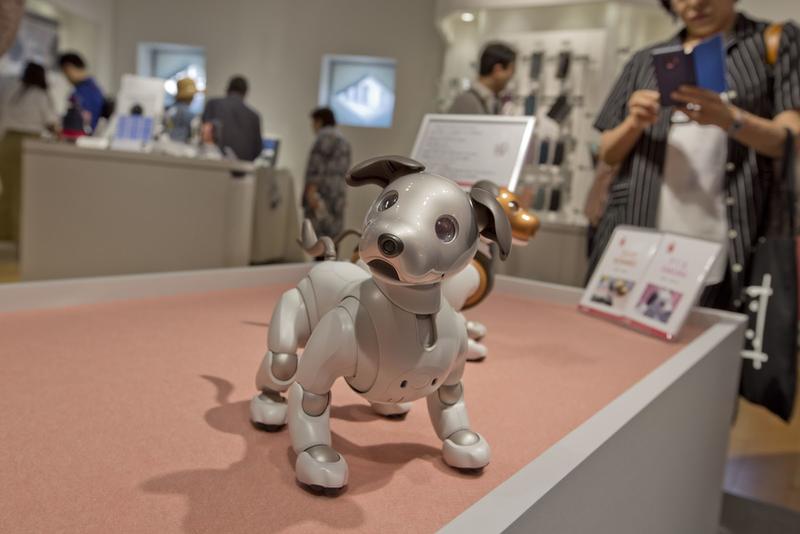
Aibo fans easily get attached to the dog, which was the creators’ goal. Sony designed the dogbot to bring out humans’ natural tendencies for craving pet companionship. With Aibo’s ability to detect spaces, recognize faces, learn new tricks and wag its tail, how could anyone resist?
Friend
Sometimes, people get lonely and need a friend. As artificial intelligence advances, more robots act like humans and can provide companionship. In fact, many companion robots pop up in assisted living homes. These bots know you because they constantly monitor you. They remember your likes and dislikes.
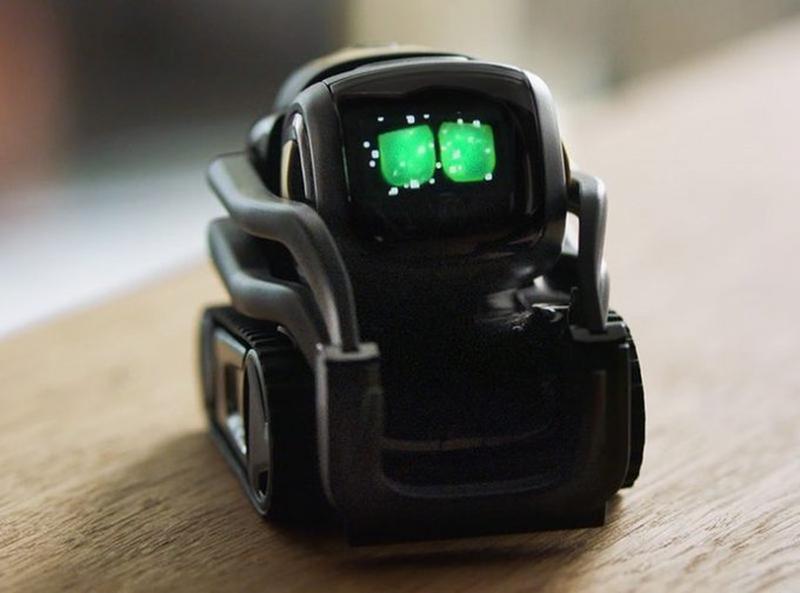
With robots and humans spending more time together, it’s no surprise that they can become friends. For instance, soldiers wanted to give their bomb-disposal robot, Boomer, a proper send-off. Boomer received a military funeral with 21-gun salutes. Boomer not only saved its human friends, but the bot also had its own “personality” that left a long-lasting impression.
Dangerous Jobs
Many people know robots can arm and disarm bombs, which are extremely dangerous jobs for humans. Now, robots are stepping into more roles that are harmful to humans. For instance, there are robots hired as firefighters and police officers, as we mentioned, but they’re also taking on other “careers.”
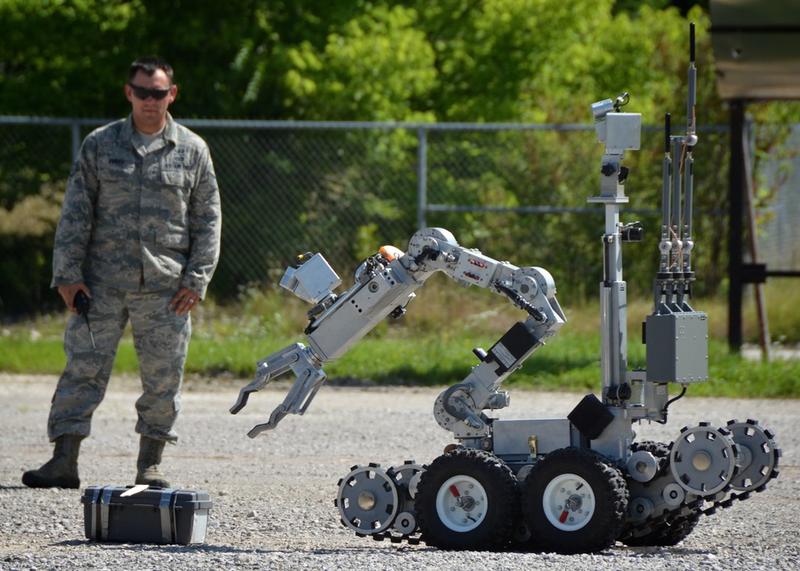
Robotic welding exists because humans are exposed to intense heat and sharp, loud noises during the process. Oil companies also use robots. Sometimes, their pipelines are full of toxic gas, so robots inspect the pipes. Robotic nuke cleaners are another great example, helping humans avoid exposure to nuclear radiation.
Diver
It’s a shark. No, it’s a mermaid. No, it’s actually a robotic diver? The National Oceanic and Atmospheric Administration (NOAA) states that we’ve only explored 5% of the ocean. Currently, deep-sea explorations are carried out by a Remotely Operated Vehicle (ROV).
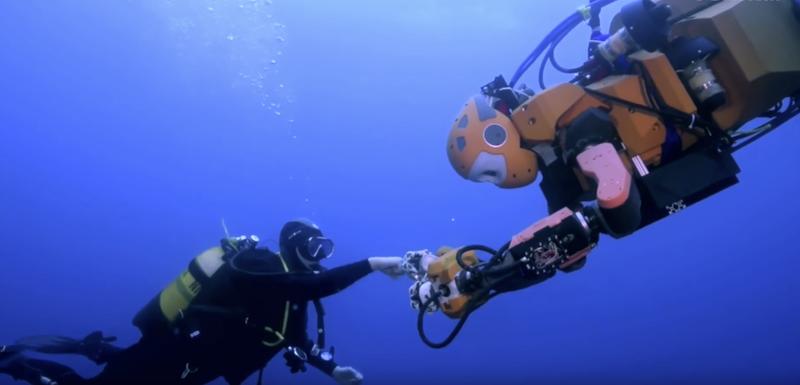
However, there’s a new robot in town called OceanOne that may allow experts to study the big blue waters more. The humanoid robot features an artificial brain, hands and eyes. OceanOne’s hands stand out the most because it can “feel” if an item is heavy and hard or fragile and light. The robot also sends feedback to archaeologists. Here’s a fist-bump to OceanOne.
TSA Facial Recognition
Traveling can be a pain, especially when you’re getting your passport manually checked at the airport. By scanning a traveler’s eye and fingertip, CLEAR has helped passengers move through security lines faster. However, airlines and government agencies want to improve security processes.
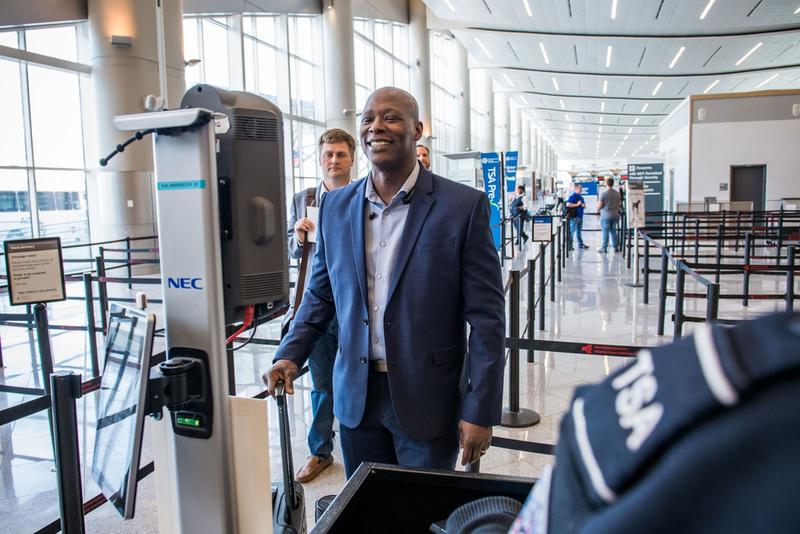
As a result, they released biometric airport screening, a.k.a. facial recognition technology, to verify identities. Currently, it’s mostly used on passengers who enter and exit the U.S. However, TSA hopes to expand the program for TSA PreCheck passengers.
Romantic Partner
In Japan, inventors developed an affectionate companion robot made for cuddling and love. Fans found themselves emotionally attached to the adorable robot, so is it possible to also fall romantically in love with AI? Movies like Edward Scissorhands, Her and Ex_Machina say yes.

In real life, some people have already given up on dating humans. A Chinese man married a robot in 2017. Another man, James, has an intimate relationship with his robot and takes her out on dinner dates. Would you date a robot?
Sophia
Hong Kong developed the most famous human-like robot in the world: Sophia. Activated in February 2016, Sophia made her first public appearance at Austin’s South by Southwest Festival (SXSW) one month later. The robot has appeared in many high-profile interviews, such as on The Tonight Show with Jimmy Fallon.
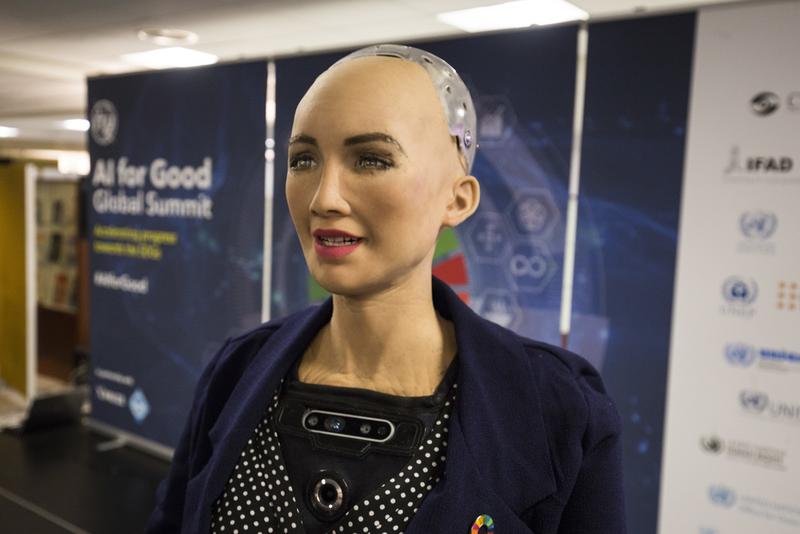
Sophia stands out because she can hold a conversation, make eye contact and display more than 50 facial expressions. She became the first robot to have citizenship, becoming an official citizen of Saudi Arabia. In one interview, Sophia said she wanted to destroy all humans, but in a later interview, she changed her statement. Phew!
Autonomous Following
Carrying or pulling items can be frustrating and difficult. But what if common items that we used could just follow us around? Travelmate may be the answer for suitcase owners. The robotic and fully autonomous suitcase follows its owners, even through crowds.
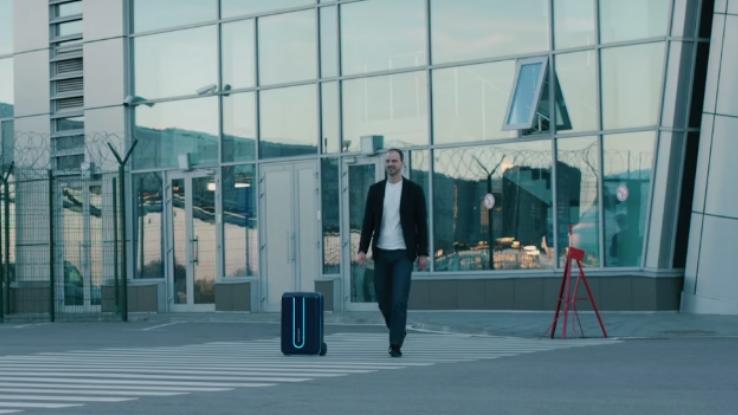
Segway enthusiasts can also get in on the action. The company created Loomo, a smart, self-driving companion robot. Using advanced computer vision, Loomo can automatically follow its owners and record videos. The transportation device also has voice and gesture control.
Laundry
How long does it take you to fold all your laundry? Based in California, FoldiMate is a company that developed a robotic laundry-folding machine of the same name. In between two and four minutes, FoldiMate can quickly fold 20 to 40 items.
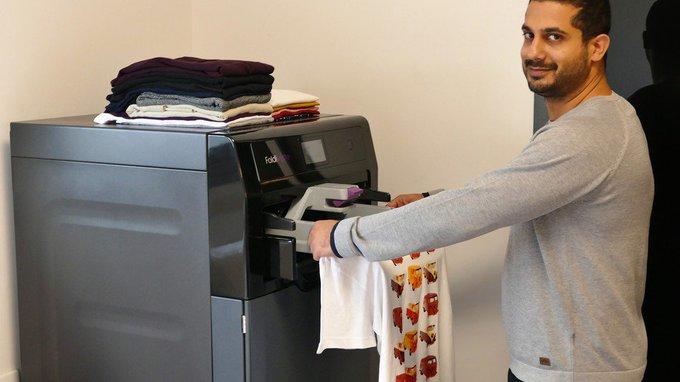
The days of slogging through this boring chore are (almost) over. FoldiMate may be the answer for people who dislike folding or don’t fold well. Large clothing stores can also benefit from the machine. It has no problem folding shirts, blouses, pants, towels and pillowcases. Tempted to buy a FoldiMate? It costs around $1,000.
Cashier-free Stores
2018 was the year of automated department stores. A few Amazon Go stores opened in San Francisco and New York. The stores feature advanced shopping technology with no lines or checkouts. To enter, you log in to your Amazon account using the Amazon Go app. Then you’re ready to just grab and go.
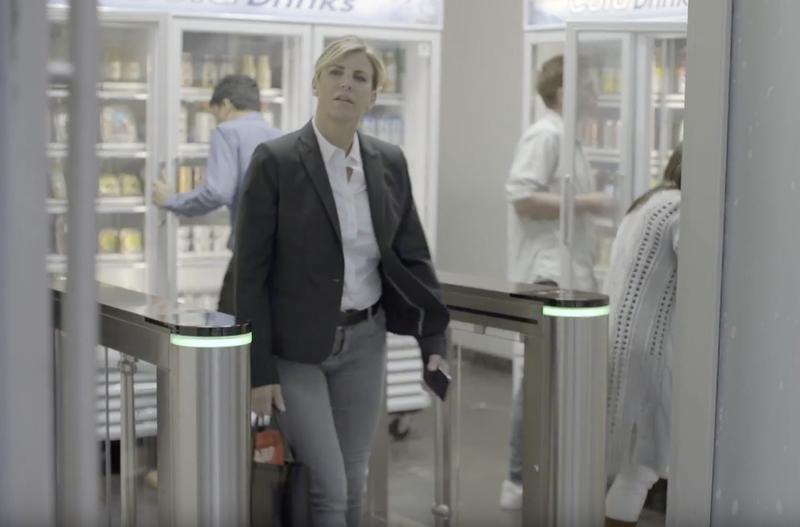
However, South Korea was ahead of the world when it came to advanced shopping technology. The country introduced the world’s first virtual store back in 2011. The stores are set up near bus stops and subways. Using their smartphones, shoppers scan codes of items they’d like to buy, ranging from groceries to electronics. Next, shoppers select the time and place of delivery. This shopping experience successfully gave people extra time and convenience.
3D Printing
3D printing has revolutionized various industries, including medicine, housing, fashion and music. Many companies work with AI-powered robots to 3D print massive objects for everyday life. For instance, a robot created the world’s first 3D-printed steel bridge in the Netherlands.
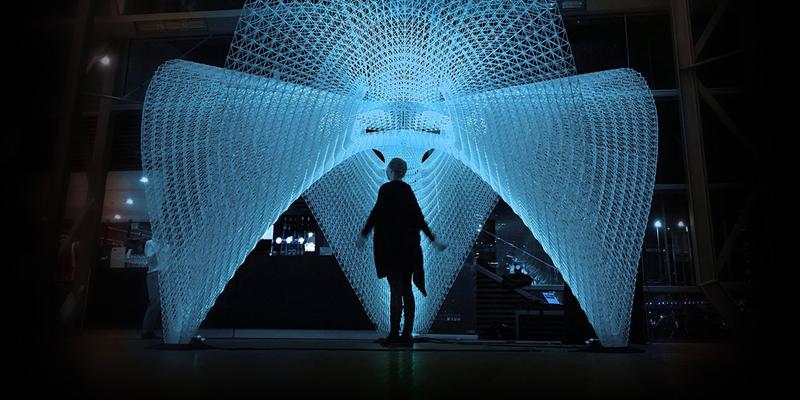
Ai Build, a London-based startup, also joined in on the fun. They used 3D printing to create enormous, beautiful works of art. During the art project, the automated robots quickly learned from their mistakes and fixed errors, allowing them to become as accurate as possible.
AI Surveillance
Constant surveillance sounds like something out of science fiction — specifically “Big Brother” from the book 1984. However, AI is making advanced mass monitoring more of a reality. In fact, AI is automated to detect more than facial recognition in videos.
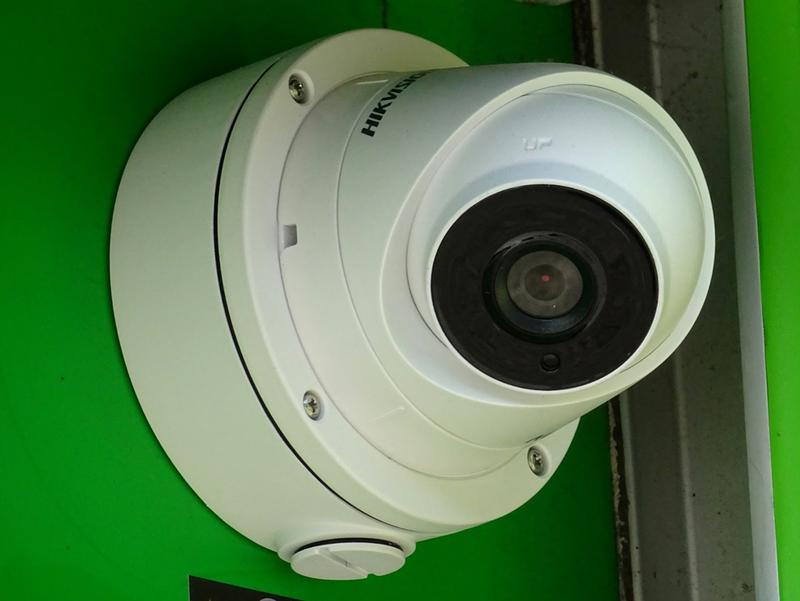
AI identifies people using their clothes or behavior. Just like humans, AI can also recognize emotions and locate anyone who is acting “odd” compared to everyone else. The U.S. isn’t the only country to use high-level surveillance technology. The Global Surveillance Index reports that at least 75 out of 176 countries use constant AI surveillance. Terrifying, right?





